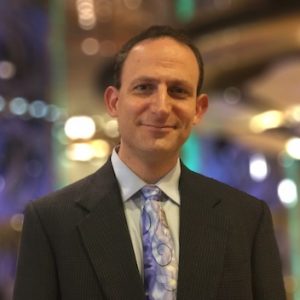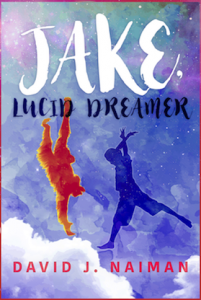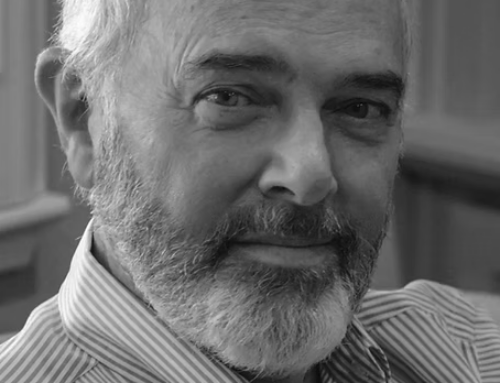 David J. Naiman writes magical realism for children under his own name and humorous medical fiction for adults under his pen name, David Z Hirsch. He lives in Maryland with his wife and two sons.
David J. Naiman writes magical realism for children under his own name and humorous medical fiction for adults under his pen name, David Z Hirsch. He lives in Maryland with his wife and two sons.
Tell us about your book.
Jake, Lucid Dreamer is the story of a 12-year-old boy who has never fully dealt with his grief after the loss of his mother four years earlier. Life has moved on but he is still damaged and angry in ways he can’t control and often scare him.
When he becomes a lucid dreamer, he looks to his dreams as a way to escape from reality, but instead his emotions chase after him and force him to confront his deepest fears. By day, Jake is a middle schooler navigating through friendship, bullies, and hormones, at home his father and little sister are addressing their grief in their own peculiar ways, and at night Jake has adventures in his lucid dreams. But these three worlds aren’t as distinct as he thinks, and they all come together to help him in ways he never expected.
Why did you want to write a book?
You know, I’d been writing for years before I ever thought to ask myself that question. Compulsion, maybe? Certainly a desire to share the stories I want to tell. I love fiction and being creative. I think anyone with the drive and passion to write a novel will do so. To me, it’s not the why as much as the what and the how. What do I want to say and how do I want to say it.
What tools or companies did you use, and what experience did you have?
I self-published my first novel, Didn’t Get Frazzled, a work of medical fiction that uses humor to address serious issues that medical students face in the course of their transition to doctors. The next story I wanted to tell was in a different genre, so I decided to go in a different direction and contacted Kwill Books. Publishing through an independent publisher streamlined the process and gave me additional support I did not have the first time around.
What do you think are the main pitfalls for indie writers?
Indie writing is big business but an even bigger business is people making money off indie writers. In the name of ambition or utter desperation, indie writers are at high risk for succumbing to overpromises or even outright scams. The other pitfall is the other extreme, indie writers who skimp on critical elements of publication like editing or book cover design. You have to invest in yourself. If you don’t take your work seriously, why should anyone else? Determining what is and isn’t worthwhile is an ongoing struggle for all indie writers, even the more experienced ones.
 As a writer, what is your schedule? How do you get the job done?
As a writer, what is your schedule? How do you get the job done?
I’m a physician at work and a husband and father at home. Needless to say, this limits my free time somewhat. I write when inspired, sometimes jotting ideas on slips of paper that I stuff into my pocket when inconvenient, other times typing for a few hours when able. I wrote nights and weekends for two decades before I published my first novel. For me, writing is a calling, something I do out of love. I’m at the point in my life when I can be my own boss and not be hamstringed by fiduciary pressure.
How do you deal with writer’s block?
For me, writer’s block isn’t a thing. That’s not to say I haven’t been stuck or uninspired, but I view this as helpful albeit frustrating. This is my brain’s way of saying you don’t need that scene or you’re going off in the wrong direction. I’ve learned to listen to the “writer’s block” and benefit from its wisdom. Once I’ve pivoted and a flood of ideas flow back into my story, I know I’m headed in the right direction. Because of this, I often don’t write my stories in order. Whatever scene inspires me the most is the one I’m going to write next.
Who are your biggest writing inspirations and why?
I remember as a child reading Charlie and the Chocolate Factory by Roald Dahl and being absolutely stunned, but not by the chocolate river or even the Oompa Loompas. No, what astonished me was the simple fact that when bad things happened, they were permanent. Other books I had read assumed children needed to be coddled, reassured, or, as I viewed it, lied to. If something was wrong, don’t worry! You could be certain it would be rectified and everything would be A-Okay in the end. That was not my experience with real life as a child. I couldn’t relate to those books. Reading Roald Dahl was a revelation, recognition that while terrible, irreversible things happen, you can still make the best of it. I wrote my book with this concept in mind.
Why did you write about this particular subject?
Growing up as a child who experienced the death of a parent at a young age, I had a hard time reading books that veered into sad subjects. That’s a shame because reading is a great way to develop a deeper understanding of yourself and others, something we all need to heal from whatever ails us. My ambition was to write a book that the younger me would have both enjoyed and been willing to read. Merging the surreal with stark reality is something I’ve always found appealing. Once I thought of using lucid dreams as a way to force Jake to come to grips with suppressed emotions, the book came together. I often stopped writing for weeks at a time because many of the scenes were so raw, but the book always drew me back. Eventually, I couldn’t not write it.
What did you learn on your journey as an author?
Keep writing, anything, everything, whatever inspires you, whatever catches your fancy, whatever keeps your creative juices flowing, whatever keeps you up nights, whatever the genre, whatever anyone else might think. If you do this, you can be sure to find your own voice and make your distinctive mark on the world of literature.
What’s next for you as an author?
I’ve got several more ideas. Currently, I’m working on a novel that applies magical realism to sibling rivalry in a way that ups the stakes in unexpected ways. Stay tuned!
Book Links
Get an Editorial Review | Get Amazon Sales & Reviews | Get Edited | Get Beta Readers | Enter the SPR Book Awards | Other Marketing Services






















Leave A Comment